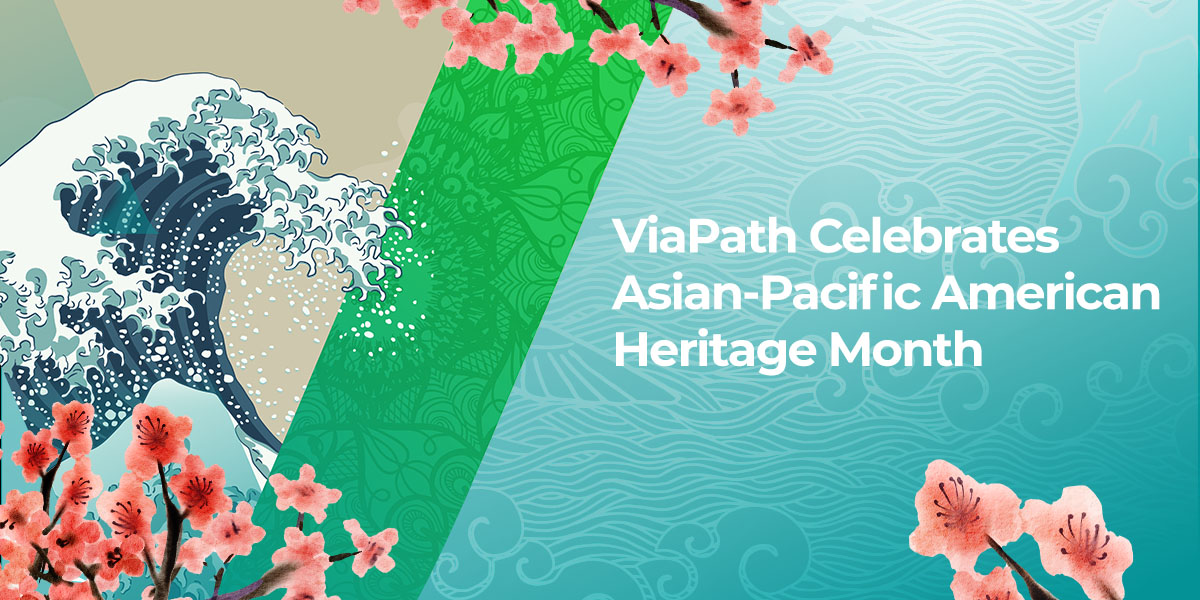At ViaPath Technologies, we continue to emphasize the importance of diversity, inclusion, and belonging. We want to take the opportunity to recognize another group of people who have enriched America’s history and are instrumental in its future success.
May is Asian-Pacific American Heritage Month – recognizing and celebrating the achievements of Asians and Pacific Islanders in the United States. The annual recognition began in 1992, and the month of May was chosen to commemorate the immigration of the first Japanese individual to the U.S. on May 7, 1843.
It’s a great time to explore the history, traditions, and culture of Asian and Pacific Islander citizens in the U.S. Following is a list of resources that can provide additional information on the importance of this month:
- Asia Society
- Asian Pacific American Heritage Month
- Asian American and Pacific Islander Heritage Month
To celebrate Asian-Pacific American Heritage Month, we’ve highlighted a few leaders whose contributions still make an impact today.
Jaden Kim – Marine Corps Pilot
The first time that Marine Corps Captain Jaden Kim rode in a military aircraft, she nearly fell out of it in her excitement. Her passion for aviation led her to train as a “backseater” – a weapons system officer who coordinated target locations. During her first deployment in 2002, she took part in Operation Enduring Freedom, flying missions over Afghanistan for six months; and deployed again in 2003 to assist in Operation Iraqi Freedom. In her interview, she discusses her sense of profound obligation and dedication to the ground troops she was supporting.
Derald and Stanley Sue – Brothers and Founders of Asian American Psychological Association
The two Chinese American brothers were influential figures in ethnic minority psychology, a subfield of psychology concerned with the science and practice of psychology with racial and ethnic minority individuals and groups. In 1972, the Sue brothers founded the Asian American Psychological Association. Dr. Derald Sue is best known for his work on multicultural counseling and racial microaggression, and Dr. Stanley Sue is best known for his work on cultural competence in psychotherapy with Asian Americans and ethnic minorities.
Dalip Singh Saund – First Asian American Congressman
In 1954, Dalip Singh Saund became the first Asian American elected to the U.S. Congress. He was born in India in 1899, and he came to the United States to study math in 1920, eventually earning his doctorate from the University of California, Berkeley. Saund moved to Southern California during the Depression, where he worked as a farmer for more than 20 years before starting his own fertilizer business in the early 1950s. Though he became politically and socially active, Saund was unable to run for office because federal law prevented him from becoming a U.S. citizen. After working to overturn that policy, he became a citizen in 1949 and soon ran for office as a local judge. He served four years as a judge before being elected to Congress in 1954.
Victoria “Vicki” Draves – First Asian American Olympic Medalist
Unlike many Olympians who began practicing their sport from a very young age, Victoria “Vicki” Draves didn’t start diving until the age of 16. Only six years later, she earned her first national diving title.
Draves truly rose to prominence in 1948, after participating in the London Summer Olympic Games, where she won gold medals from both the 3-meter springboard and 10-meter platform; the first female diver to achieve that feat. She was also the first Asian American to win an Olympic medal. After the Olympics, Draves toured the United States and Europe performing in a water extravaganza show and ended her career teaching children swimming and diving.
The information provided in this post is intended for your general knowledge only and is not a substitute for professional medical advice or treatment for specific medical conditions or diseases. Please consult your healthcare provider with any questions or concerns you may have if you are experiencing depression or any other medical condition. ViaPath Technologies does not control or take responsibility for the content or information on any external website not managed by ViaPath.




